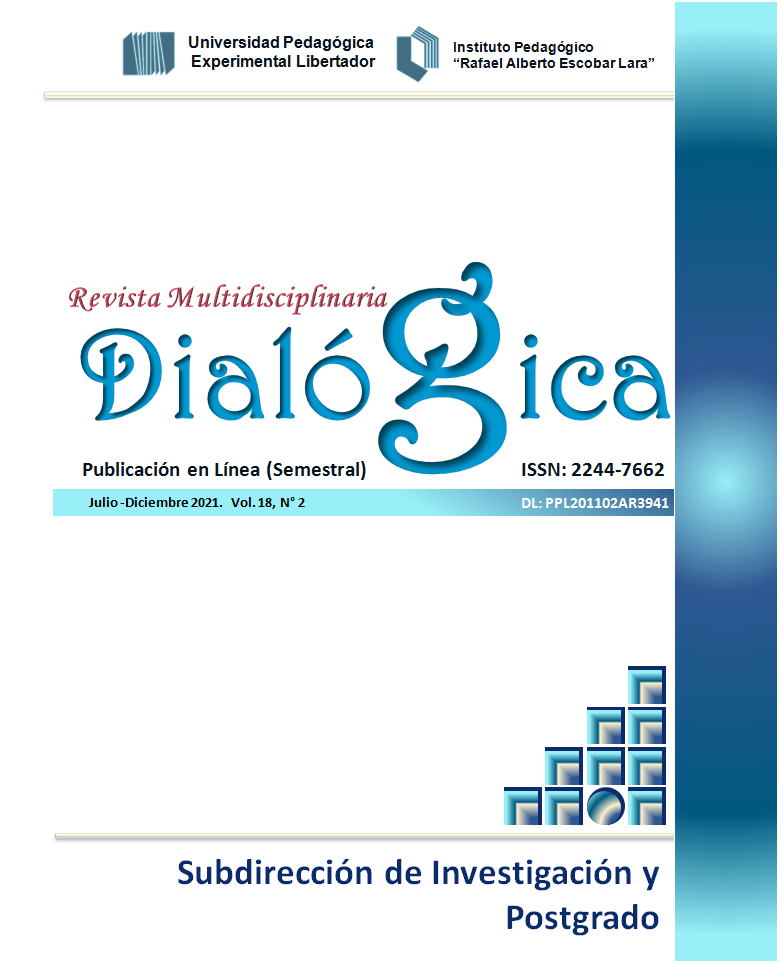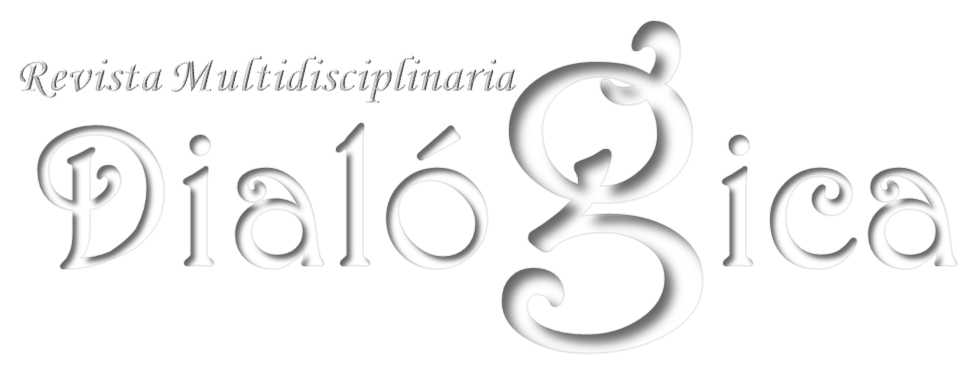ETHICS IN EDUCATIONAL PRAXIS: A CHALLENGE OF THE TEACHING PROFESSION
DOI:
https://doi.org/10.56219/dialgica.v18i2.1997Keywords:
Ethics, educational praxis, teaching professionAbstract
Professional ethics is not simply a deontology or a set of rules to govern the conduct of those who exercise a professional work; it is an experiential commitment that goes beyond the written rule and must be made effective theoretically and practically, in this sense emerges this study, aimed at generating a theoretical approach on ethics in educational praxis as a challenge of the teaching profession. The research is based on the ontoepistemic position of the phenomenological paradigm, the proposed method used is the hermeneutic one in order to understand and interpret the realities from the perspective of five teachers of the Educational Unit "La Blanquera", who acted as socio-educational actors of the study. The semi-structured interview will be used as a data collection technique, and for its analysis, the recursive processes of categorization, triangulation and theoretical contrast that will emerge from the theory and the field study will be taken into account.
References
Aranguren, J. (1997). Ética. Biblioteca Nueva.
Buendía, L, Colás, M, Hernández, F. (1998). Métodos de investigación en psicopedagogía. Mc Graw Hill.
Carreño, A. (2012). El ser y el hacer del docente venezolano en el contexto de la educación bolivariana: paradigmas y realidades. http://mriuc.bc.uc.edu.ve/bitstream/handle/123456789/931/acarre%C3%B1o.pdf?sequence=1.
Cortina, A. (1994). La Ética de las profesiones. Verbo Divino.
Escobar, G. (1999). Ética. Introducción a su problemática y su historia. Mc Graw Hill.
Gamboa, F. (2014). La Ética del Docente de la Universidad de Carabobo Percibida por sus Propios Actores. www.arje.bc.uc.edu.ve/arj17/art27.pdf.
González, A. (2012). Ética y moral. Origen de una descendencia conceptual y su trascendencia en el debate ético contemporáneo. https://search.proquest.com/openview/95f8eb050a30cb0d17531a4577b40294.
Kohlberg, L.; Power F. y Higgins, A. (1997). La Educación Moral. Gedesa.
Kutschera, F. (1982). Fundamentos de Ética. Madrid: Cátedra.
Leal, J. (2005). La Autonomía del sujeto investigador y la metodología de investigador. Signos.
Martínez, M. (2006). El Paradigma Emergente. Trillas
Merlinsky, G. (2006). La Entrevista como Forma de Conocimiento y como Texto Negociado: Notas para una pedagogía de la investigación. http://www.facso.uchile.cl/publicaciones/moebio/27/merlinsky.pdf.
Ministerio del Poder Popular para la Educación (2007). Subsistema educación inicial bolivariano. Currículo y orientaciones metodológicas. Caracas: Fundación Centro Nacional para el Mejoramiento de la Enseñanza de Ciencia, CENAMEC.
Moya, C. y López, R. (2013). Práctica docente versus ética docente. Hacia la mejora de la práctica docente a partir de la ética profesional. http://digibug.ugr.es/handle/10481/39345
Rondón, M.; Escobar, L. y López, C. (2011). Teoría Humanista. http://teoria-humanista3.blogspot.com/2011/01/humanismo-concepto-historia-y-puntos_07.html.
Rusque, A. (2007). De la diversidad a la unidad en la investigación cualitativa. Vadell Hermano.
Santos, R. (2016). La ética del docente. https://acento.com.do/2016/opinion/8375363-la-etica-del-docente/.
Savater, A. (1991). Ética para Amador. http://www.iutep.tec.ve/uptp/images/Descargas/materialwr/libros/FernandoSavater-EticaParaAmador.pdf.
Trias, E. (2000). Filosofía del Límite. http://www.elcultural.com/revista/letras/La-Filosofia-del-Limite-de-Eugenio-Trias/11861.


 @revistadialogica
@revistadialogica DialogicaUPEL
DialogicaUPEL RevistaDialogicaUPELMaracay
RevistaDialogicaUPELMaracay dialógicaupel@gmail.com
dialógicaupel@gmail.com dialogicaupel.blogspot.com
dialogicaupel.blogspot.com https://issuu.com/dialogicaupel
https://issuu.com/dialogicaupel https://revistas.upel.edu.ve/index.php/dialogica/
https://revistas.upel.edu.ve/index.php/dialogica/









